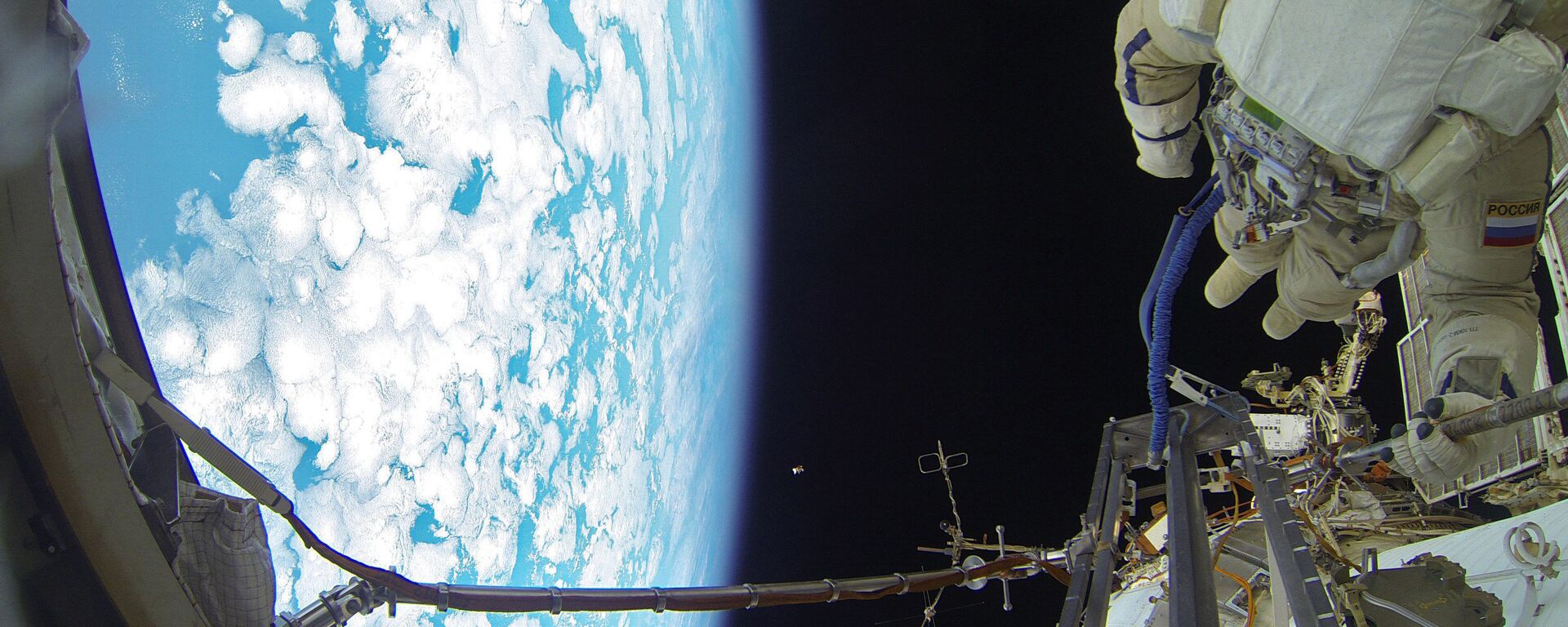https://sputnikglobe.com/20230126/scientists-develop-metallic-robots-that-can-turn-liquid-to-pass-through-obstacles-1106733913.html
Scientists Develop Metallic Robots That Can Turn Liquid to Pass Through Obstacles
Scientists Develop Metallic Robots That Can Turn Liquid to Pass Through Obstacles
Sputnik International
The new robots demonstrated, among other things, an ability to pass through a grid by switching to a liquid form before returning to their solid state on the other side.
2023-01-26T16:19+0000
2023-01-26T16:19+0000
2023-01-26T16:27+0000
science & tech
robot
shape
shift
study
https://cdn1.img.sputnikglobe.com/img/105781/67/1057816797_0:100:1921:1180_1920x0_80_0_0_443ac40eaea08f19cce64aa23a136073.jpg
A team of Chinese researchers has developed a peculiar type of miniature robot that can change its state between liquid and solid.The scientists, led by The Chinese University of Hong Kong engineer Chengfeng Pan, took gallium – a metal with a melting point of only 29.8 degrees Celsius – and embedded it with magnetic particles, thus producing what they described as a “magnetoactive solid-liquid phase transitional machine.”The team has determined that the robots made out of this material could, through the application of a magnetic field, jump across moats, climb walls, split themselves in half to move objects and even assume a liquid state to move through a grid, only to solidify on the other side – a feat that brings to life a scene from the 1991 movie “Terminator 2: Judgment Day.”Noting that providing robots with “the ability to switch between liquid and solid states endows them with more functionality,” Pan also mentioned that the team is now “pushing this material system in more practical ways to solve some very specific medical and engineering problems.”The researchers have already confirmed that their robotic creations could remove a foreign object from a model stomach and deliver drugs on demand. It could be used as “smart soldering robots for wireless circuit assembly and repair,” according to the press release.Majidi, however, pointed out that these are only “one-off demonstrations” and “proofs of concept”, and that “much more study will be required to delve into how this could actually be used for drug delivery or for removing foreign objects.”
https://sputnikglobe.com/20230122/russian-scientists-develop-robotic-masseur-for-cosmonauts-1106565888.html
Sputnik International
feedback@sputniknews.com
+74956456601
MIA „Rossiya Segodnya“
2023
News
en_EN
Sputnik International
feedback@sputniknews.com
+74956456601
MIA „Rossiya Segodnya“
Sputnik International
feedback@sputniknews.com
+74956456601
MIA „Rossiya Segodnya“
liquid robot, shapeshifting robot
liquid robot, shapeshifting robot
Scientists Develop Metallic Robots That Can Turn Liquid to Pass Through Obstacles
16:19 GMT 26.01.2023 (Updated: 16:27 GMT 26.01.2023) The new robots demonstrated, among other things, an ability to pass through a grid by switching to a liquid form before returning to their solid state on the other side.
A team of Chinese researchers has developed a peculiar type of miniature robot that can change its state between liquid and solid.
The scientists, led by The Chinese University of Hong Kong engineer Chengfeng Pan, took gallium – a metal with a melting point of only 29.8 degrees Celsius – and embedded it with magnetic particles, thus producing what they described as a “magnetoactive solid-liquid phase transitional machine.”
“The magnetic particles here have two roles,” Carmel Majidi, a mechanical engineer from Carnegie Mellon University and senior author of the study, said as quoted in a press release. “One is that they make the material responsive to an alternating magnetic field, so you can, through induction, heat up the material and cause the phase change. But the magnetic particles also give the robots mobility and the ability to move in response to the magnetic field.”
The team has determined that the robots made out of this material could, through the application of a magnetic field, jump across moats, climb walls, split themselves in half to move objects and even assume a liquid state to move through a grid, only to solidify on the other side – a feat that brings to life a scene from the 1991 movie “Terminator 2: Judgment Day.”
Noting that providing robots with “the ability to switch between liquid and solid states endows them with more functionality,” Pan also mentioned that the team is now “pushing this material system in more practical ways to solve some very specific medical and engineering problems.”

22 January 2023, 06:04 GMT
The researchers have already confirmed that their robotic creations could remove a foreign object from a model stomach and deliver drugs on demand. It could be used as “smart soldering robots for wireless circuit assembly and repair,” according to the press release.
Majidi, however, pointed out that these are only “one-off demonstrations” and “proofs of concept”, and that “much more study will be required to delve into how this could actually be used for drug delivery or for removing foreign objects.”



